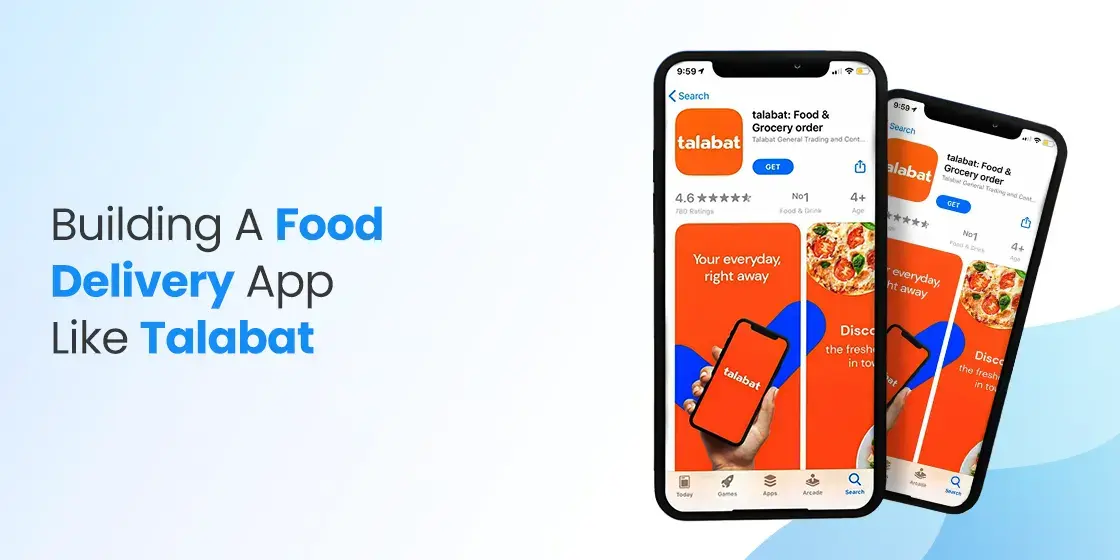Table of Content
Key Factors That Can Raise Your Ecommerce App Development Cost
Creating a website or mobile app for a business requires significant financial planning. It is something stakeholders need to evaluate early, because cost evaluation in the later stages can prove to be very troublesome. Considering the current market, there are several factors that influences the ecommerce mobile app development cost in the UAE. As a project administrator, you need to know about these factors and plan the development budget according to it. This analysis also helps you to pick the mobile app development services effectively that fits into your budget and requirements.
By having a cost analysis in mind, you can allocate the budget for development more accurately. A lot of times, startups with limited project knowledge evaluate the project cost wrongly. They do not focus on the essentials that drive the development, such as required tech stack, team’s location and more others. Neglecting these things increases the chances of evaluating ecommerce mobile app development cost incorrectly. If you want to avoid committing these mistakes in your project, read this blog in detail.
The article will list down all the factors that can scale the cost of an ecommerce project. Keeping these points in notebook will help you to plan the whole app development project properly without making any mistake. Let’s start from the basics understanding why prior cost analysis is important while developing an ecommerce project.
Importance of Ecommerce Project Cost Analysis in Advance

Prior cost analysis is crucial in ecommerce project development because it helps businesses establish a clear financial roadmap. By assessing all potential expenses—including website development, platform fees, payment gateway charges, marketing, logistics, and customer service—companies can set realistic budgets and allocate resources efficiently. Without this foresight, unexpected costs can arise, leading to budget overruns that may jeopardize the project’s success or force compromises in quality and functionality.
Additionally, conducting a thorough cost analysis enables businesses to determine the project’s feasibility and profitability. By estimating operational expenses and comparing them with projected revenues, companies can assess whether the business model is sustainable. This analysis helps in making informed decisions, such as selecting the right ecommerce platform, choosing between in-house fulfillment or third-party logistics, and optimizing marketing strategies for a better return on investment.
Lastly, prior cost analysis minimizes financial risks and enhances strategic planning. By identifying cost-saving opportunities early in the project, businesses can negotiate better deals with suppliers, avoid unnecessary expenditures, and ensure efficient cash flow management. A well-planned budget also allows for contingency funds to address unforeseen challenges, ensuring that the ecommerce project remains viable and competitive in the long run.
Factors that Influences the Ecommerce Mobile App Development Cost in Dubai

Knowing all the factors that can increase the cost of an ecommerce website or app is important to know. If you are not well-versed with these key points, you won’t be able to designate the resources properly. Let’s take a look at these factors in detail below.
Complexity of Features
The complexity of an application plays a crucial role in determining its development cost. Apps with advanced functionalities, intricate user interfaces, and integration with multiple third-party services typically require more time, effort, and specialized expertise to develop. Features such as real-time data synchronization, artificial intelligence, or complex backend infrastructures add to the overall cost due to the increased development hours. Additionally, ensuring a seamless user experience for a sophisticated app demands extensive testing, further contributing to the expenses.
On the other hand, a simpler app with minimal features tends to be more cost-effective, as it requires fewer development hours and less technical complexity. Basic applications that offer only core functionalities, such as a simple login system, static content display, or basic form submissions, can be developed more quickly and at a lower cost. Moreover, these types of apps generally require less maintenance and fewer updates, making them a more budget-friendly option for businesses looking to enter the market with a minimal viable product (MVP).
Team Location
The geographic location of the development team is a significant factor influencing the cost of ecommerce app development. Development teams based in North America, Western Europe, or Australia typically charge higher hourly rates due to higher industry standards. In contrast, teams from regions such as Eastern Europe, South Asia, or Latin America often offer more cost-effective solutions while maintaining high-quality standards. The cost disparity can be substantial, with developers in the United States can charge a bit higher, whereas those in Asia can charge a bit less.
Apart from labor rates, location also affects the overall project cost. Working with an offshore team in a different time zone may require additional project management efforts. However, some regions have built strong reputations for outsourcing, offering dedicated teams with streamlined processes to mitigate these challenges. Additionally, certain locations provide access to specialized expertise at a lower cost. Companies must consider these factors when choosing a development team to ensure cost efficiency without compromising on the app’s performance.
Platform of Development
The choice of the development platform for a mobile application significantly influences the overall project cost. Different platforms come with varying budgetary requirements based on factors like development complexity, maintenance needs, and target audience. The cost can also fluctuate depending on the specific technologies and tools used for each platform. Additionally, native mobile app development for a single platform tends to be more expensive initially compared to hybrid or cross-platform approaches, which can streamline costs in the long run.
To optimize the budget during the initial stages, it is generally advisable to launch the app on a single platform first. This approach minimizes upfront investment while allowing businesses to test the app’s viability and gather user feedback. Once the app gains traction and establishes a strong user base, developers can transition to a cross-platform solution, making it accessible to a wider audience while ensuring cost-effectiveness and scalability. This phased strategy helps in balancing budget constraints while maximizing long-term growth opportunities.
Project Deadline
The project deadline plays a crucial role in determining the overall cost of ecommerce app development. Tight deadlines often require developers to work overtime, or the need to hire dedicated software developers. Expedited development also limits the time available for thorough planning, which may result in higher expenses for post-launch bug fixes and updates. Moreover, rushing through the development process can force teams to rely on ready-made solutions or third-party integrations, which might come with additional licensing fees, further driving up costs.
On the other hand, a more flexible deadline allows for a structured and efficient development process, reducing the risk of costly errors and last-minute changes. With ample time for thorough market research, UI/UX design, coding, and rigorous testing, developers can ensure a high-quality app that requires fewer revisions post-launch. A well-planned timeline also enables businesses to negotiate better pricing with developers and third-party service providers, leading to more cost-effective solutions.
Size of the Team
The size of the development team hired for an app project is a crucial factor that directly influences the overall cost of ecommerce app development. A larger team typically consists of multiple developers, designers, and project managers, all working together to ensure a high-quality final product. However, the involvement of more professionals increases labor costs, as each team member contributes to the total development expenses. Additionally, larger teams may require more extensive coordination, leading to additional project management costs.
Conversely, opting for a smaller development team can help reduce costs, but it may also extend the project timeline since fewer resources are available to handle different aspects of the development. While a compact team might be more budget-friendly, it can sometimes result in delays, especially if unforeseen technical challenges arise. Businesses must carefully evaluate their budget, and time constraints to determine the optimal team size that ensures both cost-efficiency and timely delivery of the project.
Frequently Asked Questions
| What is ecommerce app development? Ecommerce app development is the process of creating mobile or web applications that enable businesses to sell products or services online. It involves designing user-friendly interfaces, integrating secure payment gateways, and ensuring seamless shopping experiences for customers. |
| What are the factors that can influence the cost of ecommerce app development? The cost of ecommerce app development is influenced by factors such as app complexity, platform choice and development team size. Additional factors include third-party integrations, security features, maintenance, and the project deadline. |
| What is the cost of ecommerce mobile app development in UAE? The average cost of developing an ecommerce mobile app in the UAE typically ranges from AED 30,000 to AED 100,000. This is based on several factors such as app complexity, project deadline, and more others. |
Final Words
That brings us to the end of this article, in which we have discussed the factors that can increase the overall ecommerce mobile app development cost. Understanding these aspects and allocating the development budget accordingly is crucial. It ensures that you designate the right amount of money for development while keeping all core requirements in check. This approach enables effective planning for all types of ecommerce app development, preventing any budgetary confusion from disrupting the process midway.

Empower your digital journey with StruqtIO - Your dedicated partner for cutting-edge custom software development, innovation, and digital transformative solutions. Harness the power of technology to elevate your business and redefine your digital landscape today.


